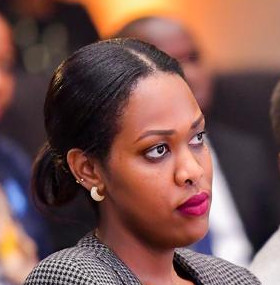

Rwanda found its own unique, nationally crafted road to reconciliation despite all the challenges any country seeking to deal with genocide or mass atrocities would face, Per Olsson Fridh, Director-General of Folke Bernadotte Academy has said.
ALSO READ: How ‘Mvura Nkuvure’ programme has enhanced cohesion, reconciliation
Folke Bernadotte Academy is a Swedish governmental agency for peace, security, and development with interventions focusing on reconciliation, dialogue, mediation, rule of law and human rights.
Fridh was speaking during a commemoration event held on April 18, which brought together international experts, survivors of the 1994 Genocide against the Tutsi, government officials, friends of Rwanda and members of the Rwandan community in Sweden.
ALSO READ: 29 years later, Rwanda remembers
Reconciliation after human rights violations, violent conflict and genocide is one of the most daunting tasks for a society, he said, it is ultimately a matter of finding a way forward and jointly transforming relationships, reconstitute the social fabric and strengthening the social cohesion.
"In the last decades, it has become more and more evident that there is no one-size-fits-all solution to reconciliation. Each context, with its specific history, dynamics, and conditions, needs to identify and design its own direction and strategy.”
He noted that this difficult path of reconciliation includes the process of acknowledging the atrocities, and suffering of the victims, preventing impunity, facilitating justice and supporting healing at all levels of society.
ALSO READ: Rwandan author discusses new book &039;Kill the Devil' on reconciliation and hope
"Rwanda is an example of a country that has chosen its own unique, nationally crafted road to reconciliation...while the scars of the Genocide might never heal fully, there are hopefully ways to learn how to live with the scars, and to continue the tireless efforts to prevent genocide from happening again,” he added.
Dr Diane Gashumba, Rwanda’s Ambassador to Nordic countries, emphasized the importance of remembering the Genocide against the Tutsi, fighting its denial and ideology, as well as ensuring that justice is served.
The Genocide claimed at least 1,074,017 lives in only 100 days with 15,593 families completely wiped out. Approximately 300,000 children were murdered during the Genocide and 95,000 children were left orphaned, and over one-third of the children in Rwanda witnessed the deaths of their families.
She noted that the commemoration theme ‘Remember, Unite, and Renew’ is not just a slogan but a brand that guides Rwandans’ daily work and beliefs.
"We remember to tell the stories that the victims cannot tell, to name their names, and to cherish the short time we lived together. We remember to keep our determination alive, that life should go on, that our country will prevail, and that future generations will live in peace,” Gashumba said.
Rwanda’s progress is remarkable, and its story should serve as an inspiration for other African countries grappling with how to shape the direction their countries take, she added.


